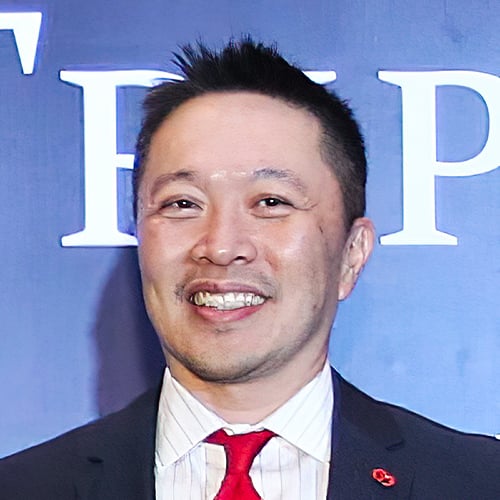The supportive environment in 2021 that enabled issuers and borrowers to gain easier access to equity and debt capital markets to raise funds has completely disappeared last year. That’s how a senior banker described 2022 as deal volumes across G3 bonds and initial public offerings in Asia, outside of Japan and Australasia, plunged against a backdrop of rising interest rates, higher inflation, volatile commodity prices and elevated geopolitical tensions. “There was nothing to shout about in terms of issuances in the Asia G3 bond market – it was very quiet, while we witnessed a thin deal flow in the equity capital market. The whole tech wave that we’ve witnessed during the previous two years, all of that is gone.”
“We’ve been spoiled for so long, subject to few short periods of volatility,” adds another banker, reflecting on the sufficient pool of liquidity available in the past due to the quantitative easing adopted by various central banks to stimulate economic activity. “You had to be nimble when tapping the capital markets in 2022 and quickly take advantage of any available issuance window, which opened and shut down very quickly.”
Amid one of the toughest market environments seen in decades, banks and securities companies suffered from shrinking underwriting fees and smaller share of the wallet in 2022. With sluggish issuance activity, figures provided by Refinitiv, an LSEG business, show that ECM fees earned by banks on deals done in Asia, outside of Japan and Australasia, fell the most in 2022, down 34.1% to US$6.83 billion, from US$10.37 billion in the previous year. Deal volume slumped 45.4% to US$255.39 billion from US$467.81 billion in 2021, with the IPO issuance plummeting 37.4% to US$101.88 billion from US$162.79 billion during the same period.
Bond fees, on the other hand, fell 8.45% to US$12.95 billion in 2022 from US$14.14 billion in the previous year. This was on the back of a 49.5% decline in G3 bond offerings in Asia, outside of Japan and Australasia, to US$202.72 billion from US$401.25 billion in 2021. The downturn was notable in the high-yield space whose volume dipped 86.4% to US$8.54 billion in 2022 from US$62.79 billion a year earlier.
Volatility was one large factor that kept G3 bond issuers and borrowers on the sidelines. For others to access the market, they should be prepared to pay up in order to raise funds. “Not everyone liked paying new issue concession, but that was the cost of liquidity under the difficult market environment in 2022,” notes the other banker.
Such market conditions highlighted the importance of the local currency (LCY) bond markets, which provided alternative funding avenues for issuers and borrowers across the region. As one DCM banker points out: “Whether its Singapore dollar, Thai baht, Malaysian ringgit or Indonesian rupiah, these LCY bond markets registered relatively healthy issuance volume in 2022. They were very resilient and were key funding sources for a lot of corporate issuers who fall back to Asian LCY bond markets for their capital requirements.”
Net-zero commitments
Undoubtedly, the significant decline in G3 bond market issuance impacted the appetite for ESG-related offerings, but that did not deter several corporates, financial institutions and other issuers from pursuing their net-zero commitments. In doing so, several landmark transactions emerged last year, which the board of editors at The Asset voted as the Best deals in The Triple A Sustainable Capital Markets Awards 2022.
The transactions included the 5 billion offshore yuan (US$740 million) blue bond and sustainability bond issued by the People’s Government of Hainan Province of China in October. These were the first blue bond and sustainability bond issued by a Chinese local government in the international capital market, which further expanded the product choices for investors in the offshore yuan bond market.
Specifically, the proceeds from the blue bond were allocated to finance projects including water sanitation; sustainable shipping and port logistics sectors; fisheries, aquaculture and seafood value chain; marine ecosystem restoration, and ocean-friendly chemicals and plastic-related sectors.
The Republic of the Philippines (RoP) priced in April its first-ever Asean sustainability bond transaction in the Samurai bond market. It was able to attract new investors from Japanese regional banks and life insurance companies, and the sovereign was also able to utilize demand in the long-end by issuing its inaugural 20-year bond in this market.
The Hong Kong Mortgage Corporation (HKMC) demonstrated its ESG commitment when it priced in October dual-currency social bonds amounting to HK$8 billion (US$1 billion) and 3 billion offshore yuan to support small and medium enterprises. As such, HKMC became the first-ever issuer in the world to arrange public social bond offerings in dual currencies – which also further promotes the yuan internationalization while channeling local currency funding to sustainable finance.
Sustainability-linked loan
The syndicated loan market also contributed to the expansion of ESG-related debts in the region. The Ant Group, an affiliate of Chinese tech giant Alibaba, debuted with US$6.5 billion sustainability-linked loan (SLL) in November, representing the first of its kind in China’s internet sector. The SLL is linked to the group’s sustainable development performance targets (SPTs), with the proceeds allocated to support the company in implementing its ESG strategy and carbon neutrality roadmap.
The loan structure is aligned with the Sustainability-Linked Loan Principles, which incentivize Ant Group to improve its ESG performance and adhere to its sustainability and net-zero commitments with SPTs built in as a two-way interest rate adjustment delivering a discount or premium on the margin depending on the achievement of its targets.
In Hong Kong, property developer Sun Hung Kai Properties raised HK$20.7 billion in SLL in June in the largest deal of its kind for the real estate sector in the territory. Under the structure, the company is entitled to interest savings if it meets a set of pre-determined SPTs, such as achieving a continuous increment in the proportion of green office buildings in its portfolio of core completed office buildings, and an annual reduction in electricity consumption intensity.
The Singapore-headquartered food and agri-business company Olam Group raised in August a total of US$4.875 billion in SLLs through its two subsidiaries Olam Food Ingredients and Olam Agri.
The facilities comprised of US$1.975 billion for Olam Food and US$2.9 billion for Olam Agri – both of which were structured to incorporate pricing mechanisms that provide interest cost reduction and incentivize sustainable practices pegged to global benchmark. These are aligned with the Poseidon Principles, which provide a framework for integrating climate considerations into lending decisions to promote international shipping’s decarbonization.
Amid the weak G3 bond and ECM issuance activity, M&A advisory and financing businesses defined many of the banks’ revenue stream in 2022. There was a strong deal momentum particularly among companies that now have good balance sheets and looking for acquisition targets.
In May 2022, the Carlyle Group concluded US$605 million sustainability-linked acquisition facilities to fund the purchase of HCP Global, a leading cosmetics packaging company, from Baring Private Equity Asia. This was the largest buyout led by Carlyle in China in the last five years and the largest sponsor buyout in the cosmetic packaging sphere in Asia in the last decade.
The debt financing included a US$415 million term loan B (TLB), representing the first ever US-style covenant-lite TLB to be fully distributed within Asia, driving the development of the TLB product in the region to augment the existing range of financing tools for clients.
For the complete list of deals of the year, please click here.
To see significant deals please go here.
For more information about the awards gala, please contact us at [email protected]









